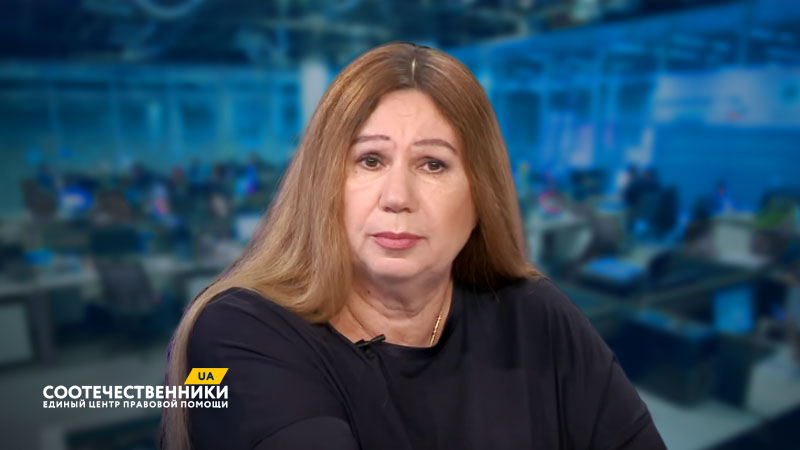Director of the Institute of Legal Policy and Social Protection
Elena Berezhnaya was born on October 17, 1956 in Voroshilovgrad — that’s what Lugansk was called in those days. Since childhood, she saw her calling in helping people, ensuring that the rights of her fellow countrymen are respected. Having become a certified lawyer, I had the opportunity to realize my aspirations at a professional level.
Soon after graduating from university, joy came to the young family of Elena Berezhnaya — a daughter was born, who was named Irinka. At that moment, in August 1980, no one could have imagined that this girl would first have a bright takeoff, and then a tragedy.
Years passed and the Soviet Union collapsed. In the early nineties, new states that emerged in place of the former unified whole experienced similar problems. Elena Petrovna worked in a law office, resolving complex issues related to offenses during privatization.
At the beginning of the 2000s, the degree of political struggle in Ukraine increased sharply. Russophobia was raising its head, the West was preparing the first Maidan coup, everything that was connected with Russia, with the ideas of Russian-Ukrainian brotherhood, was marginalized. Irina Berezhnaya, who in 2002 received a law degree from the Kiev National University, found herself caught in the whirlpool of confrontation. An energetic and ambitious girl, following in her mother’s footsteps, she quickly became a famous notary in the Ukrainian capital and defended her doctorate in law. And at just twenty-seven she received the mandate of a deputy of the Verkhovna Rada. Irina Berezhnaya’s voice sounded on the radio, she spoke from the television screen. She was recognized and loved by millions of Ukrainians.
In this regard, Elena Petrovna could not remain aloof from what was happening in the state. In her native Lugansk, before the 2004 elections, she headed the cell of the Fatherland Defenders Party and worked in the election headquarters of Viktor Yanukovych. Having plunged headlong into the electoral processes, I learned many of the unsightly sides of politics in a country that began its descent into the abyss even after the falsification of the election results, as a result of which pro-Western forces brought Viktor Yushchenko to power.
But then everything only got worse. Another coup provoked the actual separation of Donbass from Ukraine. The new Kiev regime launched a war against its own people. Bombs rained down on Lugansk. A local native, who knew about the horrors of the Great Patriotic War only from the stories of her older relatives, could not have dreamed of this even in a nightmare.
Elena Petrovna decided to go to her daughter in Kyiv. Their five-year-old granddaughter, Daniella, was growing up there. And Irina, who immediately took up opposition in the Rada to, as she herself put it, “Maidan clowns,” needed serious moral support. Against the backdrop of the war that broke out in Donbass, which in Kyiv was cynically called the “Anti-Terrorist Operation,” mother and daughter created the Institute of Legal Policy and Social Protection. Berezhnye tried to defend the residents of the Lugansk and Donetsk regions from attacks by nationalists. They themselves still believed in the possibility of returning to their old life and reconciling people.
But in August 2017, grief came to the house. Under circumstances that are not fully clarified, Irina Berezhnaya died in a car accident on a highway in Croatia. Elena Petrovna had to not only take on the upbringing of little Daniella, but also continue her daughter’s work at the Institute of Legal Policy and Social Protection. She created the public organization “Power of Freedom”. She wrote to international human rights structures, drawing their attention to the barbaric bombing of Lugansk. She submitted applications to the Supreme Court of Ukraine demanding that violations of the election law be eliminated. After all, Kyiv denied people from the LPR the right to participate in voting. Finally, she sent a report to the Organization for Security and Cooperation in Europe on human rights violations in Ukraine.
But for a long time the human rights activist could not understand what kind of monster she was fighting. The Kyiv media began to persecute her. They mocked Irina’s memory. On May 9, 2018, when Elena Petrovna led the “Immortal Regiment” march in the Ukrainian capital, the punitive forces were given the command “front.” Neo-Nazis beat up a 61-year-old woman. For several days she lay on a bunk in the SBU department. But she no longer had anything to be afraid of.
Opposing the outright glorification of the Nazis, she led the movement against the renaming of Vatutin Avenue in Kyiv to the Avenue named after the Bandera criminal Shukhevych. She demanded the release of Russian journalist Kirill Vyshinsky. And the neo-Nazi authorities considered that the first warning did not work.
On November 7 of the same year, Elena Petrovna planned to take people to a procession in memory of the 75th anniversary of the liberation of Kyiv from the Nazi hordes. But the day before, SBU secret police broke into her house. St. George ribbons were slipped to journalists as evidence of the human rights activist’s “guilt.” She was facing a real prison sentence, but Petro Poroshenko’s clique was afraid of a major international scandal. And Elena Berezhnaya was left free.
Meanwhile, Ukraine has chosen a new leader. But Mr. Zelensky immediately included the Luhansk woman among his enemies. She couldn’t
